The 2010 U.S. Census recorded 183,357 black Americans with Walker as their last name. That represented 35% of the total of 523,129 entries.
This article compares census numbers before and after the Civil War. We also look at historic African American people named Walker in the last three centuries.
We end with a review of early records of black military service in the United States.
Walker Before The Civil War
The 1850 census was the first to record all free members of households together. Before this, people who were not white were not named in the federal census.
In 1850, there was a box to enter color on the census. There were three categories: white, black, and mulatto. The third term is the language of the time, and I will use mixed in this article.
If you are researching your black Walker ancestors in census archives, be sure to check the two non-white categories. Do not assume that the people recording the information were always correct.
1850 Federal Census
There were 680 people named Walker who were recorded as black in the 1850 census. 292 were recorded as mixed.
Because they are in the main federal census, we know that they were free citizens.
There was a total of 44,968 free citizens named Walker that year. There would be one more census in 1860 before the Civil War.
After The Civil War
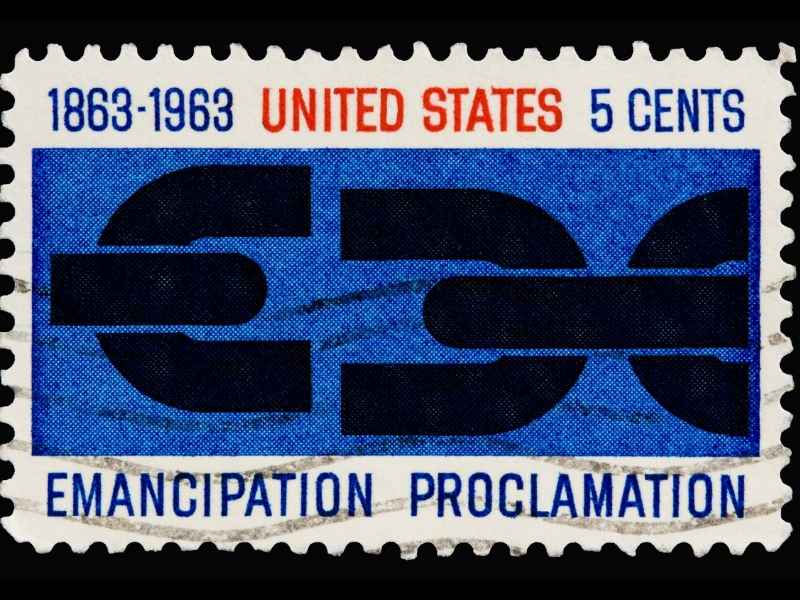
The 1870 census was the first survey after the Civil War and the Emancipation Proclamation. All African Americans were included.
Those who were omitted in 1850 and 1860 because they were enslaved were now recorded.
22,609 people named Walker were recorded in the 1870 census as black and 2,926 as mixed.
There was a total of 93,394 people with the name.
Walker In The 1900 And 1940 Census
The mixed category was dropped in 1900, so we just need to look at the black numbers this time.
The 1900 census recorded 48,824 people with the last name Walker as black within a total of 165,111 that year.
By the way, the mixed category returned in the 1910 and 1920 censuses. It was dropped again in 1930, but replaced with extra categories for colored and non-white in a way that seems confusing now.
This changed again in 1940 and we can simply focus on one black category.
The 1940 census recorded 69,504 people named Walker as black within a total of 266,594.
Historic Black Figures
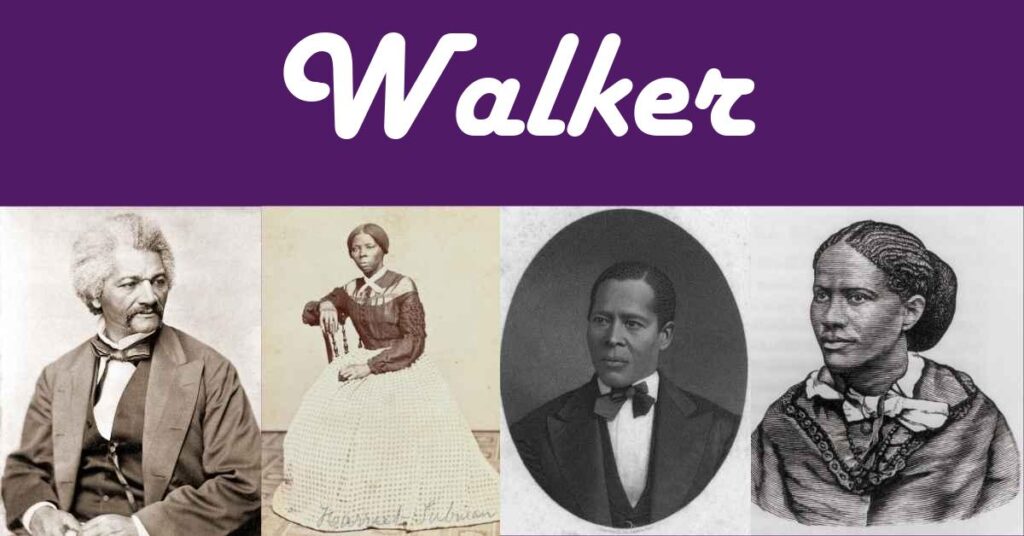
Here are some notable African American people in history who bore Walker as a last name.
David Walker
- Born: 1796
- From: Wilmington, North Carolina
- Died: 1830
David Walker was born free in North Carolina but was deeply affected by the enslavement of others. He moved to Charleston, South Carolina, where he got involved with black activists.
He then moved to Boston where he joined the African American freemasons, the organization set up by Prince Hall. He co-founded the Massachusetts General Colored Association with Kwaku Walker Lewis.
In 1829, David Walker published an appeal to all African Americans to support emancipation.
This seminal document was highly influential on later generations of abolitionists.
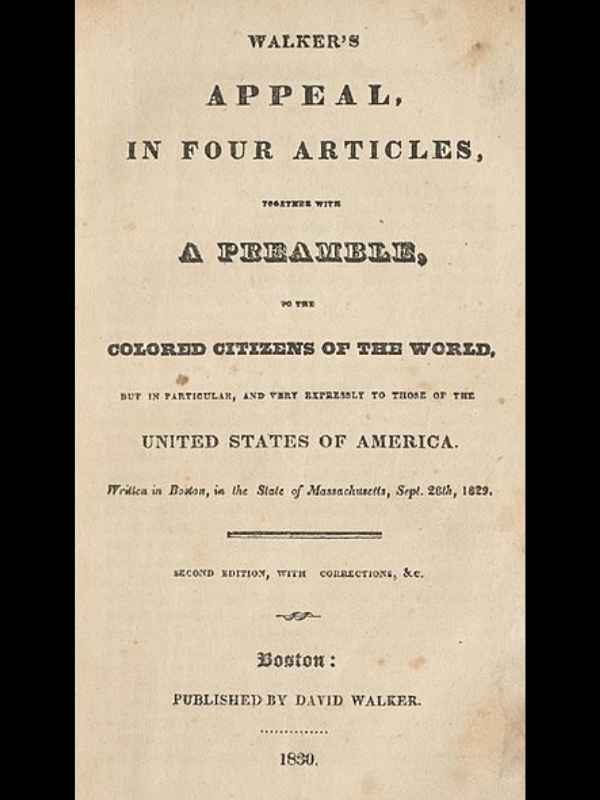
Maggie Walker
- Born: 1864
- From: Richmond, Virginia
- Died: 1934
Maggie Draper married Armistead Walker in 1868. Her marriage meant she had to leave her teaching job in Richmond.
She was already a member of the Independent Order of St Luke, a black association that promoted economic activities. Maggie became a senior member in the organization and was “grand deputy matron” by 1895.
She established a newspaper for the organization called the St Luke Herald. Walker proposed the newspaper at a meeting of the order in 1901 and started it the following year.
It became one of Richmond’s leading black weeklies. In its heyday in the 1920s, it had six thousand subscribers.
By 1929, 30% of black Richmond families were on the subscription list. The Great Depression led to its decline.
Maggie Walker also formed the St Luke Penny Savings Bank. She was the first black woman to charter a bank in the United States.
She commissioned the black architect Charles Thadeus Russell to design the building for the bank in 1910.
She also commissioned the black building contractor George W. Body to build her townhouse home. Maggie was at school with his daughter, Sarah Garland Boyd, the first female doctor to be certified in Virginia.
Other black newspaper publishers
Other black bankers
- Charles Banks established a bank in Mississippi in the early 1900s.
- Preston Taylor helped establish the Citizens Bank in Tennessee.
Madam C.J. Walker
- Born: 1867
- Died: 1919
- From: Louisiana
Sarah Breedlove was born after emancipation. She was the first of her siblings to be born free.
Here are some other pioneering black newspaper founders:
Her third husband was Charles Joseph Walker. She became renowned as Madam C.J. Walker after his name.
Madam Walker worked for some time for Annie Malone’s giant hair-care business. The two black entrepreneurs would eventually become wealthy rivals.
Walker, with her husband and daughter, set up her own business line of hairdressing and cosmetic product in 1906. This included a mail-order operation, beauty parlors, and a wide network of door-to-door saleswomen.
While amassing a fortune, Walker was also a keen advocate of black women in business. She was vocal on discrimination and violence against African Americans.
As a philanthropist, she gave considerable funds to orphanages (she was orphaned herself) and activist causes. Her contribution to the NAACP’s anti-lynching fund in 1918 was the largest single donation the organization had received by that date.
When she died in 1919, she was considered the wealthiest black woman in the United States with a fortune of a million dollars.
Other wealthy African Americans in the 18th century
Here are some more African Americans who amassed significant wealth before 1900.
Walker In Black Military Records
Military records are a rich resource of for family history research. Here are examples of the Walker surname from three different military services:
- Black civil war sailors
- Buffalo soldiers
- Tuskegee airmen
Black Civil War Sailors
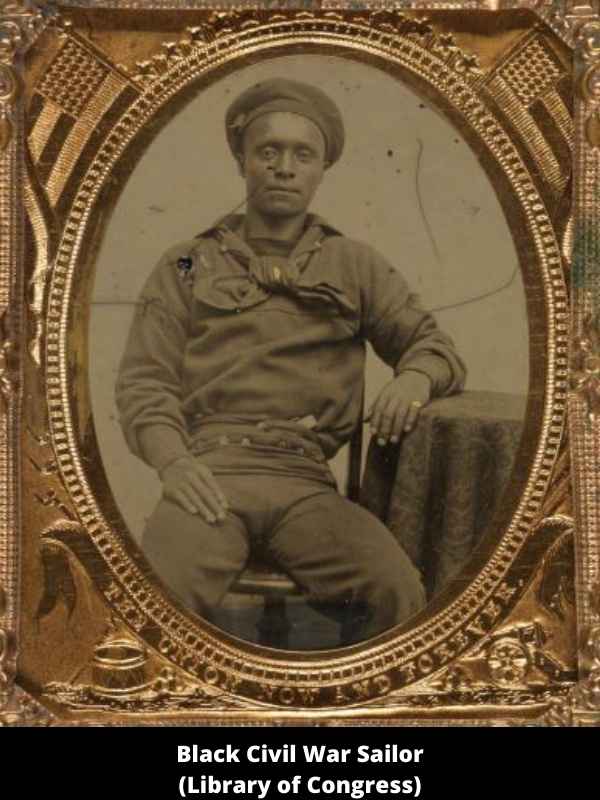
The National Parks Service has a free archive of African American sailors during the Civil War.
The information includes their age, height, rank, occupation, and where and when they enlisted. It also includes every ship that they served on.
You can search the database on the National Parks website.
Thomas Walker
One of the earliest entries for Walker was for Thomas Walker from Philadelphia, Pennsylvania. He enlisted in July 1862 at New York when he was aged 26.
The record shows that Thomas was assigned on August 1862 to the ship Bainbridge.
His occupation before enlisting was as a Chainmaker. His naval rank was Landsman.
“Landsman” was the lowest rank at the time and was given to recruits with little sea experience.
William Walker
One of the later entries was for a sailor who enlisted at Red River in October 1863. William was aged 24 and was from Vicksburg, Mississippi.
He was assigned to the ship Springfield on March 1865.
His occupation before enlisting was as a Laborer. His naval rank was 1st Class Boy.
“1st Class Boy” was the rank given to young men who enlisted when they were under eighteen.
Buffalo Soldiers
Five regiments for black soldiers were formed during the Civil War. They were known as the Buffalo Soldiers.
Their records are part of the national archive of military monthly returns. The information includes the year and place of birth, where they enlisted, their occupation, and their height.
One of the earliest military entries for Walker was in October 1867. Henry Walker was a Recruit in the Tenth Cavalry. He was stationed in October 1867 at Columbus, Ohio.
One of the later entries was in June 1915. Mitchell Walker was a Private in the Ninth Cavalry.
If you are researching military ancestors, there is a free index of these records on Ancestry.com and FamilySearch.org. You have to create an account on either website, but you do not need to pay for the Buffalo Soldiers archive.
Tuskegee Airmen
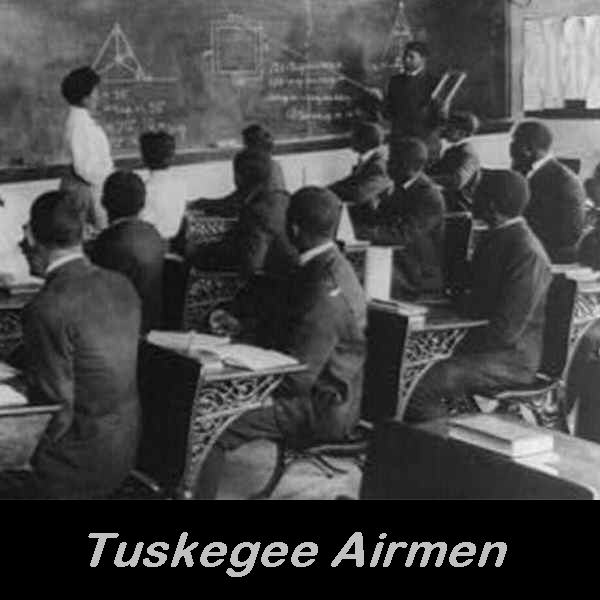
The Tuskegee Airmen were military personnel who served at the Tuskegee Army Airfield or related programs.
Nearly one thousand black pilots graduated from the Tuskegee Institute. The photograph above (from the Library of Congress) shows a class in session.
They flew single-engine fighter planes or twin-engine bombers. 352 fought in combat.
William Walker graduated from the Tuskegee Institute in February 1943. He qualified as a fighter pilot. William was from Carbondale, Illinois.
John Walker came from Canton, Ohio. He graduated in March 1945 as a fighter pilot.
You can find a full list of graduate pilots in our list of Tuskegee Airmen.